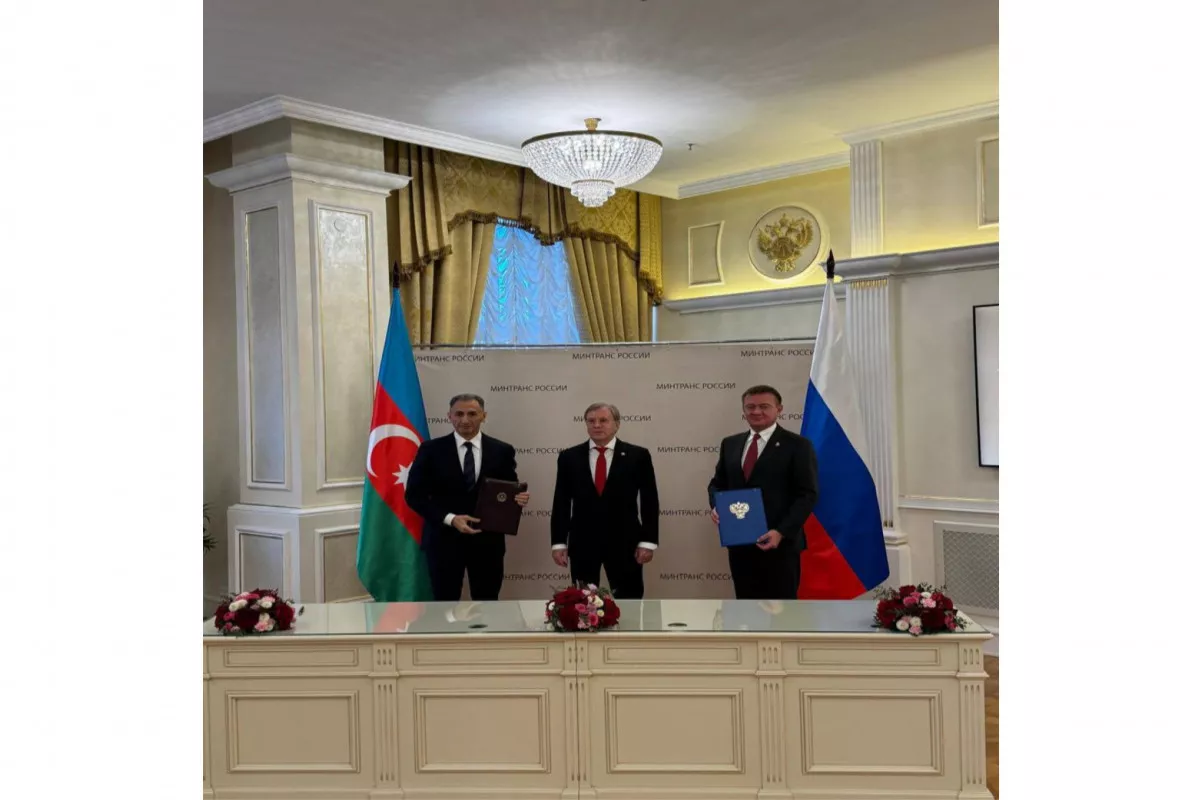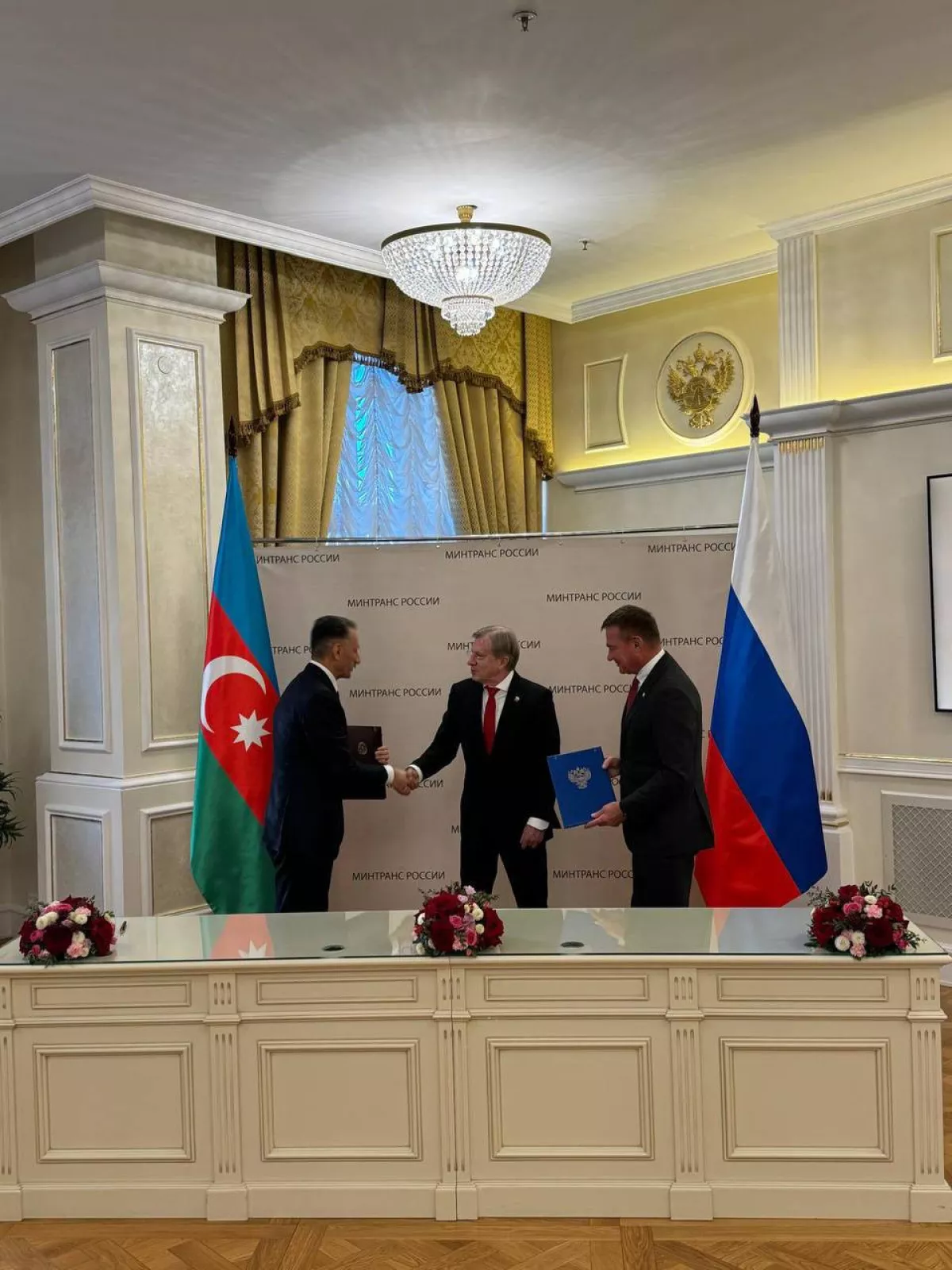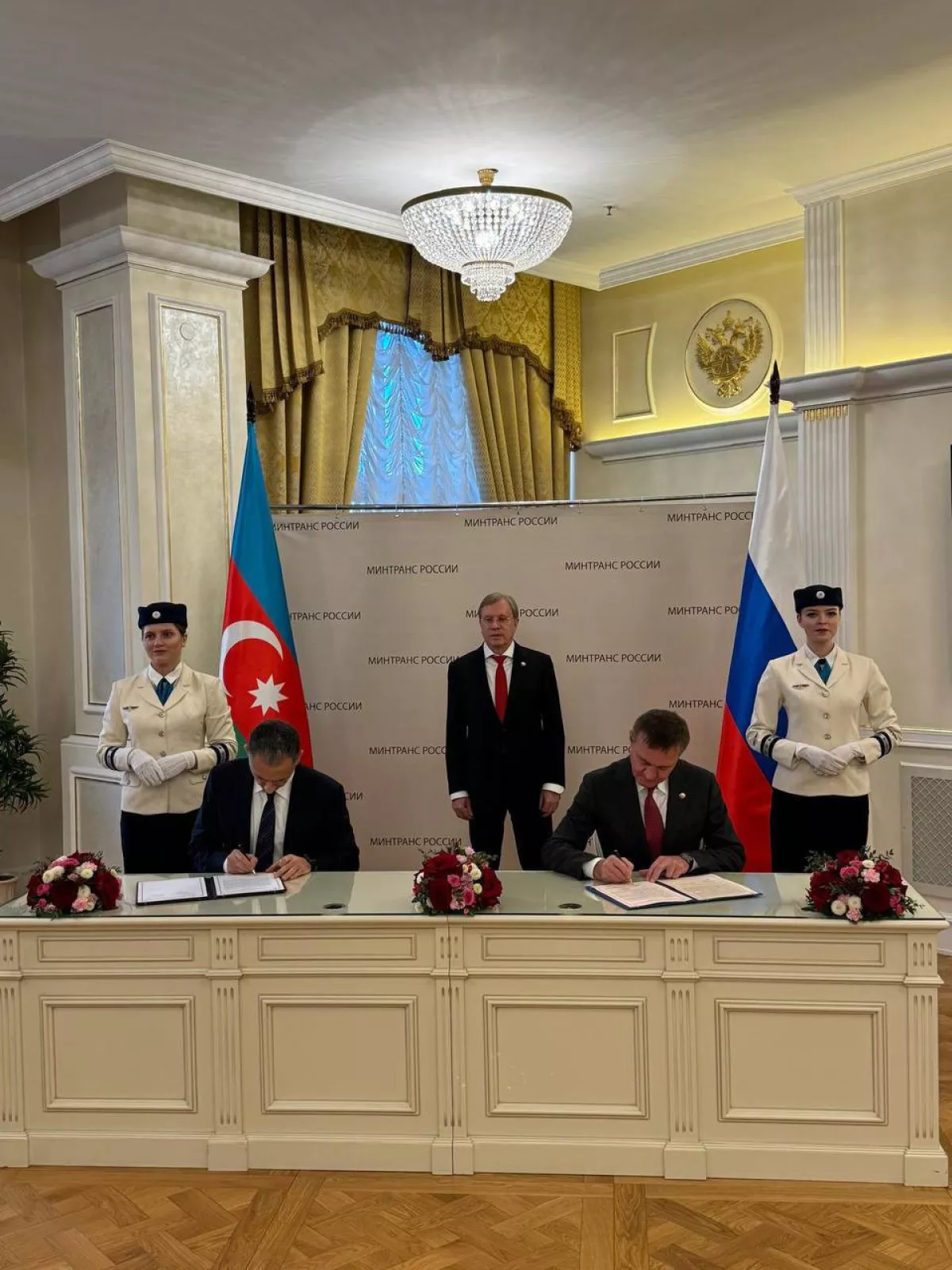Azerbaijan, Russia sign historic agreement to boost North-South ITC PHOTO
Azerbaijani and Russian Transport Ministers Rashad Nabiyev and Roman Starovoit met today at the Russian Ministry of Transport, where they signed a landmark intergovernmental agreement on the development of the North-South International Transport Corridor (ITC).
The agreement, signed in the presence of Russian Deputy Prime Minister Vitaly Savelyev, focuses on enhancing cooperation between the two countries in developing railway infrastructure and improving transit cargo transportation along the North-South ITC, Caliber.Az reports referring to local media.
The primary objective is to increase the efficiency of transport links and expand the capacity of the western route of the ITC.
The western route of the ITC connects key railway stations in Russia - border stations Yalama (Azerbaijan) and Astara (Azerbaijan) - border station Astara (Iran) and the reverse direction.
The agreement is a significant step in establishing and strengthening bilateral and regional cooperation in railway transport, infrastructure modernization, and technological development.
A key feature of the agreement is the commitment to a guaranteed annual cargo volume for transport from Russia to Azerbaijan, starting at 5 million tonnes per year from January 1, 2028. The volume is expected to increase to 15 million tonnes annually after necessary infrastructure upgrades. If either country fails to meet the agreed cargo volumes, compensation will be provided by the respective railway companies.
The North-South ITC, spanning around 7,200 kilometres, links the Russian seaport of St. Petersburg to Mumbai, India’s major west coast port. The corridor integrates railways, sea routes, and highways passing through Russia, Azerbaijan, Iran, and other regional countries. Initially established in 2000 with Russia, Iran, and India as signatories, the ITC now also includes Oman, Armenia, Belarus, Kazakhstan, Syria, Türkiye, Tajikistan, and Kyrgyzstan.
The corridor facilitates maritime routes from India to Iranian ports, rail networks through Russia and Azerbaijan, and Caspian Sea routes. Key developments in recent years include the first commercial cargo shipment via the ITC in July 2022, as well as an agreement in 2023 to build the Resht-Astara railway in Iran, expected to be completed by 2025. This 162-kilometre section is the final unfinished part of the corridor’s western route.
By Tamilla Hasanova











